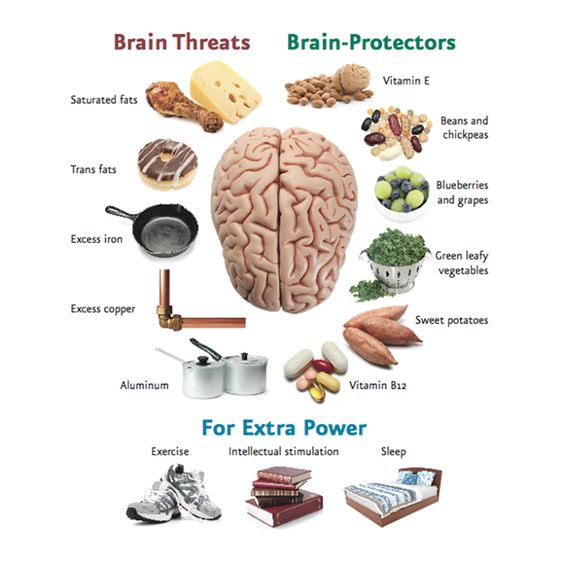If your memory has been less than stellar lately, don’t despair. While most people experience a mild decline in memory starting in their 30s or 40s — and up to 15% of those older than 65 develop Alzheimer’s disease — memory loss isn’t inevitable. But there’s plenty you can do to ward off more serious cognitive problems. The key is to take a holistic health approach to your brain. Challenging your mind, improving your diet and being smart about the supplements you take can lead to a drastic improvement in memory and mental functioning.
Start building a better brain with these simple tips:
Never Compromise Your Sleep

Skimping on shut-eye can impair your recollection, according to a recent study which found that medical students who suffered long-term sleep deprivation had difficulty with both their short and long-term memory. For optimal brain power, aim to get seven to nine hours of sleep each night.
Use Your Nose

Be sure to note smells whenever possible, as scent has a powerful ability to trigger memory. A study published in the journal Neuron reported that adults shown images accompanied by a scent were better able to remember those images than those who viewed images not accompanied by a scent.
Sip Some Tea

A study from the University of Newcastle Upon Tyne in UK found that drinking green or black tea may inhibit the activity of certain enzymes in the brain associated with memory decline.
See Your Doctor

If your memory has seemed fuzzy lately, ask your physician to perform a simple blood test to check your homocysteine levels. Studies have tied high levels of homocysteine, an amino-like substance that circulates in the blood, to memory loss. Reversing this effect is usually as simple as increasing your intake of B vitamins.
Do Daily Mental Aerobics

Your mind is the same as a muscle – if you don’t exercise it regularly, it’s going to get stiff and slow. Crossword puzzles, board games, card games and even computer games are good mind-strengthening activities.
Don’t Forget Good Fat

Omega-3 fatty acids, which are found primarily in fish like salmon and tuna, nourish brain cells and help regulate brain chemicals. If you’re not a fan of fish, take a supplement.
Feed Your Brain
Like the rest of your body, your brain needs nutrients to function optimally. In addition to a balanced diet and a multi-vitamin, make sure you eat antioxidant-containing fruits and vegetables. A study published in the Archives of Neurology journal found that when antioxidant vitamins E and C were taken together in supplement form, they had the potential to prevent Alzheimer’s by fighting memory-damaging free radicals in the brain.



